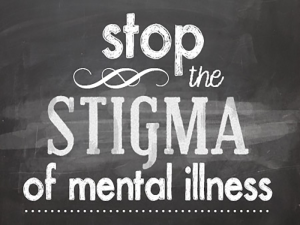 It’s the topic of my talk this weekend. As a pastor, with my concern for families, I can’t shy away from the topic. Did you know that every one-in-four adults suffer from a diagnosable mental illness? That’s over 50 million people in America. Did you know that one-in-five children under the age of eighteen have a diagnosed mental illness? That’s one in five kids. Mental illness according to the National Alliance on Mental Health is defined as a medical condition that disrupts a person’s thinking, feeling, mood, ability to relate to others and daily functioning. A mental illness diagnosis might include such disorders as anxiety, attention-deficit/hyperactive disorder, autism, eating disorders, mood disorders, personality disorders, schizophrenia and other psychotic disorders. Perhaps the most alarming statistic relates to suicide. Did you know that over 100 people a day commit suicide in the United States? Over 90 percent of individuals who committed suicide had a mental illness diagnosis.
It’s the topic of my talk this weekend. As a pastor, with my concern for families, I can’t shy away from the topic. Did you know that every one-in-four adults suffer from a diagnosable mental illness? That’s over 50 million people in America. Did you know that one-in-five children under the age of eighteen have a diagnosed mental illness? That’s one in five kids. Mental illness according to the National Alliance on Mental Health is defined as a medical condition that disrupts a person’s thinking, feeling, mood, ability to relate to others and daily functioning. A mental illness diagnosis might include such disorders as anxiety, attention-deficit/hyperactive disorder, autism, eating disorders, mood disorders, personality disorders, schizophrenia and other psychotic disorders. Perhaps the most alarming statistic relates to suicide. Did you know that over 100 people a day commit suicide in the United States? Over 90 percent of individuals who committed suicide had a mental illness diagnosis.
People, we’ve got to do better in understanding and walking with others through mental illness! A mental illness diagnosis impacts nearly every family. Where do we start? I think it begins with telling the stories and with mental illness education. This weekend in our services, two members at Cool Spring will share their story of struggle with mental illness. I applaud Erik and Sarah for their transparency and vulnerability. They’re brave; it’s not easy. I believe as they share their respective stories, it will give permission to others to do the same and perhaps seek additional help and support. Why do so many sit in silence and afraid to speak? Mental illness is the elephant in the room. People don’t know how to respond, act and approach. Maybe it’s time that we move from ignorance to understanding as it relates to mental illness.
For starters, let me dispel a few misconceptions:
Just because someone struggles with a mental illness doesn’t make them any less of a Christian. Some people out there think that if you’ve got your “spiritual act” together, you don’t suffer as a Christ follower. Really? You’re kidding, right? Unfortunately, I’m not. People suffer, and that includes faithful Christ followers. To propose a faith that doesn’t know suffering is to propose something less than authentic faith. There are too many hurting people in the Scriptures to discount pain or even denote suffering as a symptom of someone who just needs to get their act together.
Here’s another thought, we need to realize mental illness isn’t necessarily a spiritual issue. It is a physical problem. While all of life is sacred, mental illness is a physical disorder. To advise someone struggling with a mental illness that if they’d just read their Bible more and pray harder, they would be cured is ludicrous. While I would not shy away from praying and reading more, to suggest it as a sole solution to your ailment is to provide ignorant advice. You do more harm here than good. Tell that to the diabetic, if you just pray more and read more your diabetes will go away. Really? Say that to the heart patient, if you just pray more or read more your heart condition will go away. We wouldn’t say that, and we shouldn’t give that advice to a person struggling with mental illness.
And please, don’t tell someone with mental illness to just get over it. That too is harmful advice. You don’t get over the mental illness; you walk through it. You can’t treat mental illness with an antibiotic mindset. You don’t just take a pill and get better all of a sudden. It just doesn’t work that way.
What can we do in the meantime to help individuals and families cope with mental illness?
We can choose to be present in the lives of people affected, both the individual and the family. The worst thing you could do is retreat; the most important thing you can do is simply be present in their lives.
We must choose to be patient. People who are struggling with mental illness both view and process life differently than someone who might not deal personally with a mental illness. Give more time, give more space, and give more grace.
We can be available to both individuals and families. While you always need boundaries in life, you can make yourself available.
For the future, we’re doing a couple of things here at Cool Spring. First, I’m in the process of establishing a team of people who will help develop a strategy on how we can best respond as a church with individuals and families struggling with mental illness. I think we need to look at how we can create a culture of openness, acceptance, and support. Secondly, we have a meeting this Wednesday evening in B64, that’s where the Exchange meets. We’ve invited Colin Connelly from the National Alliance on Mental Illness in Central Virginia to be with us. He will make a presentation and then open the floor for questions. Anyone is welcome, and it all starts at 6:30 p.m.



